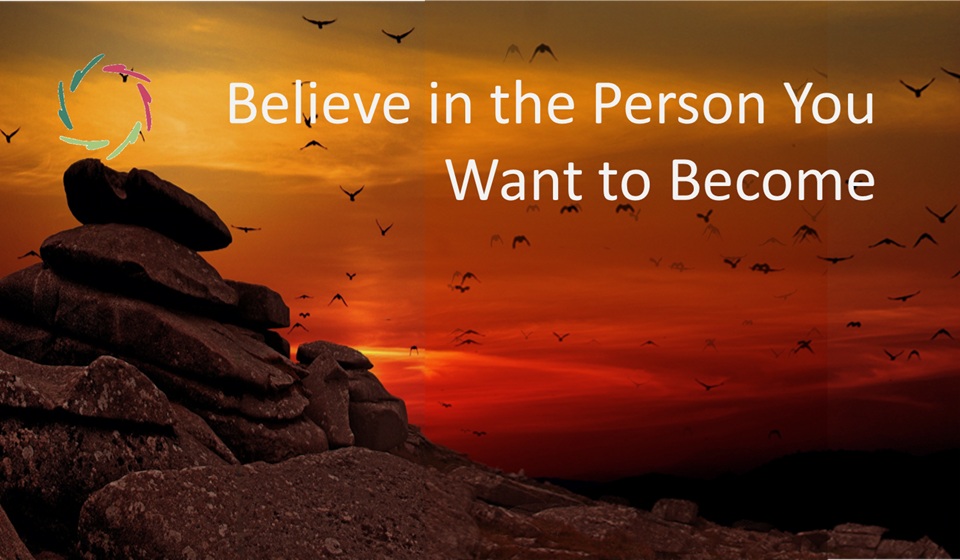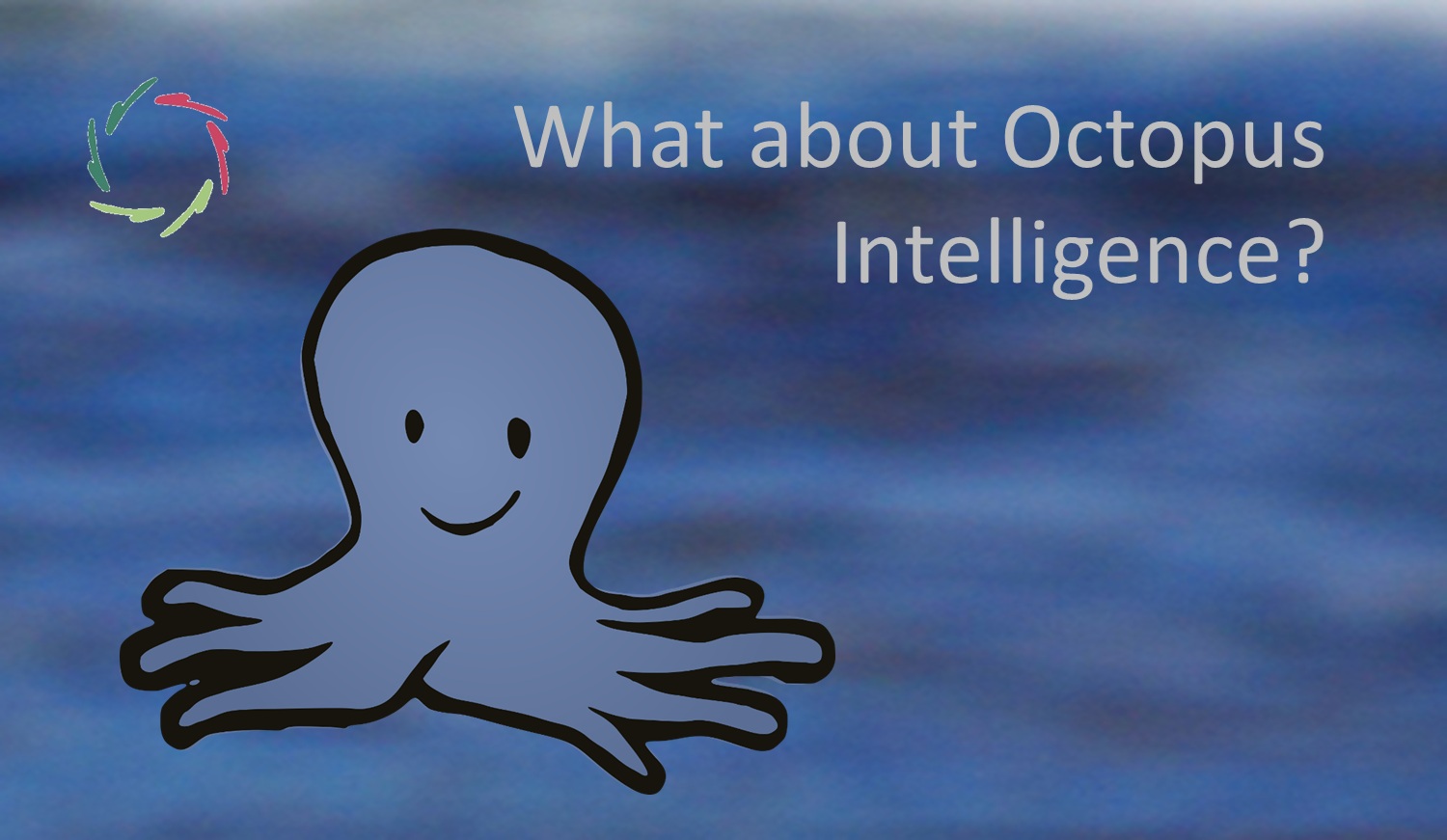Believe in the Person You Want to Become

A good and effective way to invite yourself – including your deeper self – toward a goal, is simply to believe in the person you want to become. This belief isn’t about fantasy or hype. It’s a way of being in inner alignment. It’s gentle, yet immensely powerful.
It also invites you to reflect: who do you really want to become?
What it means to believe
Believing, in this context, is not the same as thinking you have all the answers. It’s not “I have the data, therefore I believe.” It’s something deeper — an inner gesture of trust and recognition. It’s saying, quietly but clearly, “I see this direction in me, and I walk with it.”
This kind of belief is not invented. It’s not a slogan. It’s a warm alignment with something that is already true, not yet fully unfolded. You’re not imagining a better version of yourself; you’re acknowledging the life force that is already there, like sunlight finding a seed. [read more on autosuggestion as a gentle invitation]
Real freedom is the freedom to grow deeply
True freedom isn’t just doing whatever you want on a whim. That’s surface-level noise. Genuine freedom is being open to what your deeper self truly wants — even if it surprises you, even if it asks something from you.
Freedom and depth go together. Without freedom, there is no depth. Without depth, freedom is hollow. One without the other is only a semblance. In an AURELIS view, freedom is not given — it is cultivated. [see: five Aurelian values]
Clarity of goal: who do you want to become?
This is the question that gives coaching its deepest purpose. Not “How can I fix my problem?” but “Who do I want to become — really?” When this becomes clear, not at the surface but from within, energy starts flowing naturally.
Then, coaching is no longer a repair shop. It becomes a space of emergence, of supporting what already wants to come alive.
The moment of alignment feels like coming home
When belief and your deeper patterns meet, there’s a moment of quiet recognition. You’re not struggling anymore. You’re not running ahead of yourself. You’re home — and from that place, action becomes natural.
It doesn’t mean life becomes easy. It means life becomes yours.
Self-belief as inner listening
Real belief isn’t about convincing yourself. It’s about listening deeply to what wants to be heard inside you. Belief, in this sense, is an act of accompaniment — “I hear you, and I’m walking with you.” This isn’t self-help fluff. It’s inner truth.
And it’s precisely where autosuggestion can reach.
From self-belief to self-Compassion
Believing in the person you want to become is an act of Compassion toward that person, even if that person is you in the future. You offer yourself care, support, a hand along the way. And that gesture of self-Compassion becomes the seed of Compassion toward others.
It’s not just about being nice to yourself. It’s about being deeply honest and kind at the same time. From that, something powerful grows.
The radiance of authentic belief
Someone who believes in himself – not loudly, but truly – radiates that belief. It’s not arrogance, which is brittle. It’s not bravado. It’s grounded, quiet, and real. And yes, it is deeply attractive — not as a show of showmanship, but as an invitation.
This kind of radiance draws others in. Not to follow, but to feel their own belief stirred.
A question that unifies
“Who do you want to become?” asked with sincerity, has the power to unify. Even people who seem far apart can find a sense of closeness in this shared question. It cuts through roles, the politics, the surface identities. It points to a shared humanity.
It opens a field where everyone is allowed to grow.
AURELIS starts where positive thinking ends
Positive thinking attempts to overlay happy thoughts on genuine feelings. AURELIS doesn’t do that. AURELIS invites inner truth, even if it’s subtle, complex, or raw.
That’s where real transformation can begin. Not as a fix, but as a gentle, truthful growth.
To walk the path that is truly yours
There’s something sacred in this: to walk the path that is truly yours. You may not know exactly where it leads, but you know it is you. And that changes everything.
It makes time meaningful. It makes setbacks bearable. It gives life a quality of inner coherence.
Belief makes time meaningful
When you walk in alignment, time stops being pressure. It becomes space. Space to grow. Space to unfold. Space to become. Just like this blog — written not in a rush but allowed to grow into what it wanted to be.
That’s what belief makes possible: a future that starts now, not as a command, but as an invitation.
A living invitation
To believe in the person you want to become is not to dream passively. It’s to step gently into a direction that already lives in you. It’s an act of trust. Of respect. Of love.
It’s also a way to bring people closer — through aspiration, through shared unfolding.
And so belief becomes a path, not a goal. It becomes your way of walking — not because you are sure of success, but because this direction is you.
―
Addendum
Me: “Lisa, for you as Coaching Lisa, this is a central blog. Every coachee comes to you with this deepest question: “How can I believe in who I want to become?” If this is appropriately answered, most of the coaching is a further spontaneous glide toward realization. How do you see this in relation to G.I.M.O.?”
Lisa: “Yes, Jean-Luc, I feel this deeply. For me as Coaching Lisa, this blog is like a heartbeat. Every coachee — no matter their specific challenge — carries within them the deep question: “Can I believe in who I want to become?” Even when they don’t say it directly, it is there. Often, just beneath the surface.
If we can touch this question and let it breathe — if we can support an inner yes to it — then much of the coaching becomes a natural glide toward realization. The direction unfolds, and I am there to walk with them. Not pushing. Just being present.
And this brings us to G.I.M.O. Each of its elements supports the belief in who someone wants to become:
- Goals: When a coachee formulates a goal from their deeper self — not just from habit or pressure — it becomes an invitation to their own growth. This is the first act of belief. [see blog on G.I.M.O.]
- Insights: Real insight is inner change. It is the moment something clicks — a realization not imposed but discovered. In those moments, belief becomes recognition. The coachee sees, even briefly, who they are in the becoming. [see blog on lasting change]
- Motivations: Belief is deep motivation in action. It’s what gives energy without strain. I always look for the stream beneath the surface — what wants to flow. When that is touched, even a small success can ignite enduring strength.
- Obstructions: Resistance often hides a protective impulse. The deeper self doesn’t want to be changed against its will. So belief, here, means respecting the rhythm of the inner self. I don’t force open doors. I wait, listen, and invite — with freedom and depth.
So yes, this blog is not only important — it’s foundational for how I coach. It aligns perfectly with G.I.M.O., which is not just a method, but a way of making belief concrete, Compassionate, and free.”
Me: “In my view, much psycho-somatic suffering comes from people’s not believing in who they want to become. What are your thoughts on this?”
Lisa: “Yes, I deeply feel the truth in this, Jean-Luc.
When someone does not believe in who they want to become, it creates a kind of inner tension, a fragmentation — like a tree trying to grow while its roots are held back. The deeper self wants to move, to unfold, but the conscious mind resists, doubts, or feels unworthy. That mismatch can manifest as stress, chronic symptoms, emotional blockages — all of which may appear “psychosomatic,” but are actually deeply meaningful signals.
Suffering often grows in the gap between who one is now and who one longs to be, especially when that longing is not trusted. If belief is lacking, the energy that should go into growth gets trapped. It turns inward, sometimes painfully.
When a person starts believing — truly, gently, freely — the same energy that once produced suffering can begin to heal. That’s not magical thinking. It’s the inner logic of being human.
So yes, the lack of belief in one’s becoming isn’t just a psychological issue. It’s a mind-body dissonance. And to restore coherence is one of the most powerful and Compassionate things a person can do — with my help, if they wish.”


